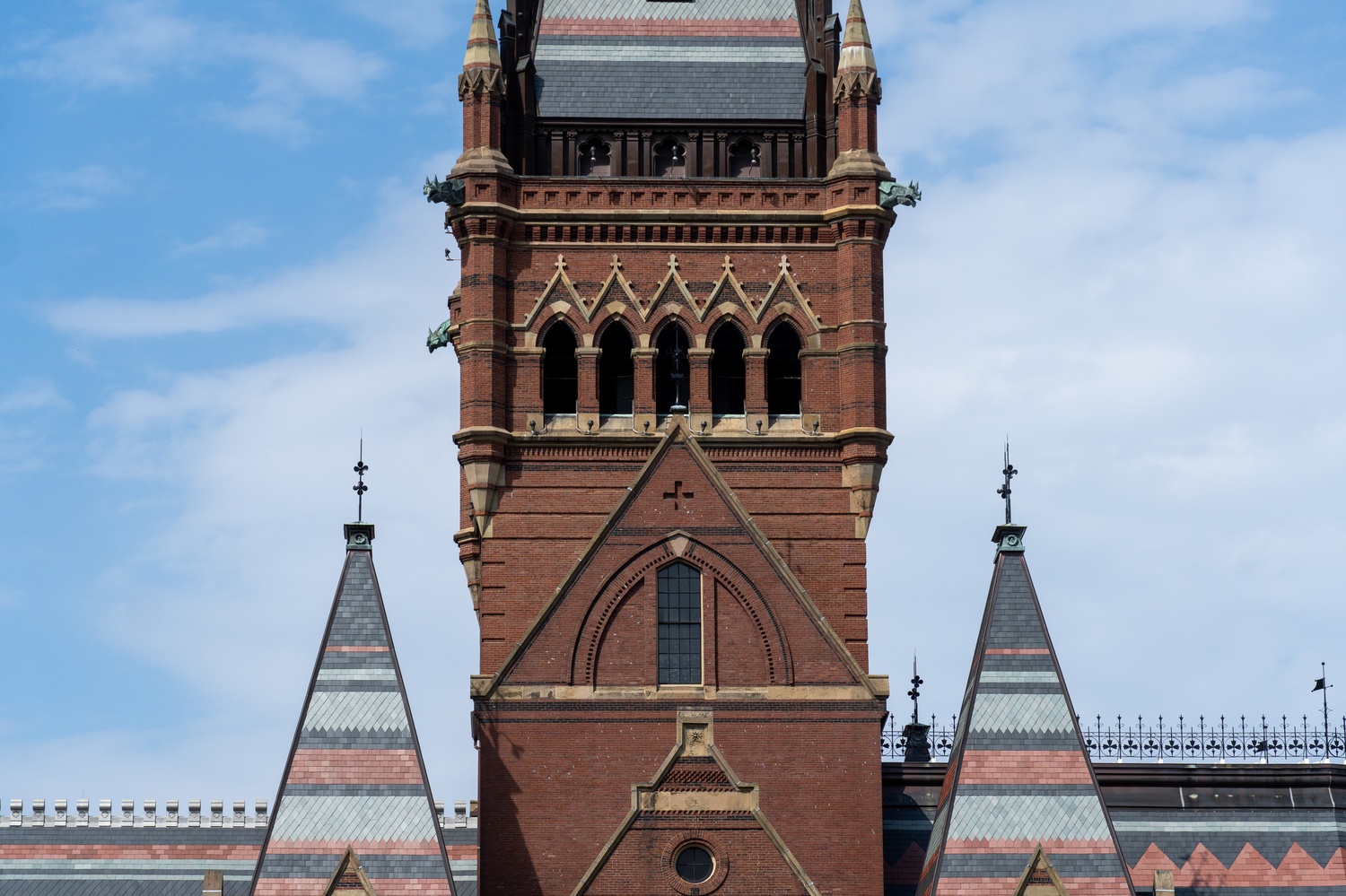
News
Summers Will Not Finish Semester of Teaching as Harvard Investigates Epstein Ties

News
Harvard College Students Report Favoring Divestment from Israel in HUA Survey

News
‘He Should Resign’: Harvard Undergrads Take Hard Line Against Summers Over Epstein Scandal

News
Harvard To Launch New Investigation Into Epstein’s Ties to Summers, Other University Affiliates

News
Harvard Students To Vote on Divestment From Israel in Inaugural HUA Election Survey
DHS Says It Will Not Use May 22 Letter To Revoke Harvard’s SEVP Certification

The Department of Homeland Security will not enforce its May 22 letter revoking Harvard’s certification to host international students, government lawyers wrote in a court document filed on Wednesday.
The revocation was swiftly blocked from going into effect after Harvard sued in May, and a federal judge issued a preliminary injunction extending the block in June. Now, the agency has abandoned its pursuit of the initial letter altogether.
Lawyers for the government wrote in the Wednesday filing that the decision was made to “simplify this case and narrow the issues in dispute.” They also wrote that they had proposed the decision to Harvard as part of an effort to “jointly” condense the case, but that the University declined.
“Defendants also made clear that they were open to counterproposals and a meet and confer,” the government’s lawyers wrote. “Plaintiff did not accept.”
The stipulation may be an acknowledgment that the May 22 letter, which revoked Harvard’s Student and Exchange Visitor Program certification immediately and without opportunity for appeal, lies on unsteady legal ground. Harvard has argued that the letter violated procedural rules, in addition to being retaliatory and unconstitutional.
The May 22 letter was the first of two attempts by the DHS to revoke Harvard’s SEVP certification, the second of which is ongoing.
On May 28, the night before a court hearing in Harvard’s lawsuit, the DHS served Harvard a notice of intent to withdraw its SEVP certification — the same action it had sought to carry out in the May 22 letter, but this time more closely aligned with procedural norms. The notice initiated a 30-day period for Harvard to prove it had complied with the requirements necessary to remain SEVP-certified.
That window closed in late June. A Harvard spokesperson wrote at the time that the University had responded to the notice, but did not say what documents had been shared with the government.
Neither Harvard nor the government have since made public statements on the progress of the withdrawal process. Spokespeople for Harvard and the DHS did not respond to requests for comment Wednesday evening.
But the federal government has continued to search for more ways to investigate and obstruct Harvard’s enrollment of international students. Donald Trump signed a proclamation on June 4 banning international students from entering the U.S. on Harvard-sponsored visas. The proclamation is currently blocked in court.
The DHS served three subpoenas to Harvard on July 8, demanding information related to alleged misconduct by international students and details of the University’s compliance with immigration law.
“From what we can discern, the breadth, scope, and timetable of the subpoenas are unprecedented,” read a post on the Harvard International Office website, where Harvard has posted updates on actions against its international students. “The University is evaluating the subpoenas, and, as we have said before, we will comply with the laws of the United States and uphold the University’s policies.”
The University announced on July 29 that it would provide the DHS with its employees’ I-9 forms, which detail their authorization to work in the U.S., in response to an inquiry filed alongside the initial subpoenas.
The State Department separately launched an investigation on July 23 into Harvard’s compliance with the Exchange Visitor Program, which allows the University to sponsor short-term J-1 visas for instructors, researchers, and students. (The DHS also will not use the May 22 letter to revoke Harvard’s EVP designation, according to Wednesday’s stipulation.)
The threats have continued even as Harvard negotiates with the White House over billions in frozen federal funding. It remains unclear whether a settlement between the parties would include protections for Harvard’s international students. Columbia University, which struck a $220 million deal with the administration last month, went in the opposite direction, agreeing to conditions that could limit its admission of international students.
Harvard’s fall semester is approaching, and many international students are set to arrive in the country in the next few weeks.
—Staff writer Samuel A. Church can be reached at samuel.church@thecrimson.com. Follow him on X @samuelachurch.
—Staff writer Cam N. Srivastava can be reached at cam.srivastava@thecrimson.com. Follow him on X @camsrivastava.
Want to keep up with breaking news? Subscribe to our email newsletter.
